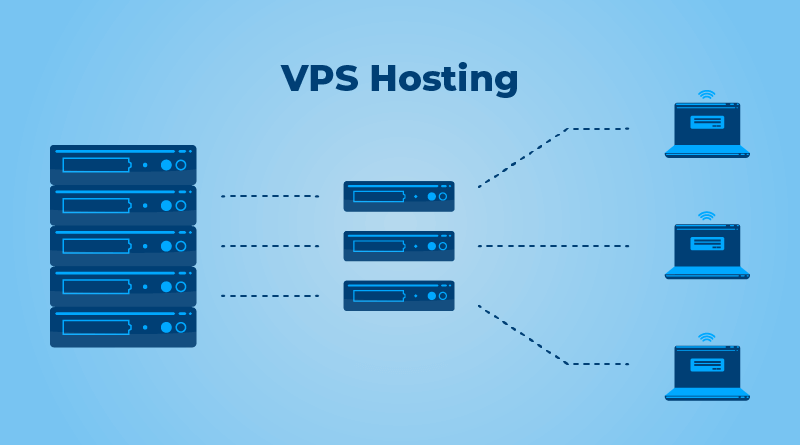Table of Contents
What is Web Hosting?
Web hosting is a service that allows individuals and companies to publish their websites or web pages on the Internet. In a web hosting service, you are essentially renting space on a physical server to store all the files and data required for your website to function correctly.
A web host, also known as a hosting service provider, provides the services and technologies needed for a website or webpage to be viewed on the Internet. Websites are hosted or saved on highly specialized computers known as servers.
All Internet users must type your website address or domain into their browser if they want to see your website. After that, their device will connect to your server and will send your web pages to them via the browser.

Why is Web Hosting important?
Even if it’s your very first website or you have many already, it’s essential to know what you’re getting when you buy a hosting plan. Your web host offers a place for you to keep all of your website’s essential files and data. It also handles delivering that data to visitors to your site via their browsers.
When visitors try to access your website, their web browser uses that data to locate your web host and get the contents of your website. In other words, your website would be disconnected from the rest of the Internet without a web host.
How Does Web Hosting Work?
Users can access your website after the hosting company has hosted it by typing on your website address (www.example.com) in their web browser. When they do this, their device connects to the server that hosts your website. In turn, the server serves (sends the files you’ve saved on the storage to display) the website to your web visitor in their web browser.

Self-Hosting
You can host your own website, but this requires extensive technical knowledge. Setting up and setting up a web server from scratch, including the equipment, infrastructural facilities, hardware, and software, is what self-hosting entails. You will also be responsible for all ongoing maintenance.
Corporate businesses may choose to host their own website to keep everything on-site, but this requires a significant investment in servers and human resources. For large corporations, this makes sense. Third-party web-hosting providers are a much more cost-effective option for small to medium-sized businesses.
Users benefit from continuous accessibility, robust security against hacker attacks, regular maintenance, and technical help when unexpected issues arise.
Types of Web Hosting
Third-party hosting services ease the user’s burden of maintenance and setup in a variety of ways. Let’s take a quick look at some of the many types of web hosting available.
Shared Hosting
Multiple websites can use a single server with shared hosting. Typically, you will not know who or what websites share a server’s resources with you. Each customer gets limited resources to the total amount of server resources they can use, but your hosting package determines this.
Shared web hosting is a fantastic solution for small businesses and private websites that do not require specialized configuration or greater frequencies because of its simplicity and affordability. As a result, shared hosting is a fantastic choice for beginners who require low-cost hosting to get started.
However, the low price has limitations, which we’ll discuss further below. Because most hosting companies provide the same amount of space and storage, selecting a company you can rely on is critical.
Pros
- Shared hosting typically includes a C-Panel, making managing your website simple.
- It is inexpensive and ideal for small-scale websites.
- Most hosting companies offer multiple levels of hosting, so you can gradually upgrade your hosting package. As a result, shared hosting is a perfect place to start.
- It does not require specialized technical skills.
- No need to worry about server maintenance and administration.
To summarize, shared hosting can be an excellent choice for website owners on a tight budget or those just starting out online. You can constantly update to a different hosting package as your budget allows, so you’re not stuck indefinitely with this level of hosting.
Cons
- Other sites that share the server can cause the server to become overburdened.
- There aren’t enough customization options to get the best performance out of your website.
- Load times can be much slower than on dedicated servers.
- As your site gets more traffic, you may notice that it performs significantly worse.

Virtual Private Server Hosting (VPS)
VPS (Virtual Private Server) hosting is a hosting that uses virtualization technology to provide you with specialized (private) resources on a server with multiple users.
VPS is a more secure option than shared hosting, which does not provide you with a dedicated server space. However, it is on a smaller scale and less expensive than renting an entire server.
Your website shares a physical server with other users with this web hosting type, but the web host creates a virtual partition for each user. As a result, they provide a certain amount of resources to a site hosted on a virtual private server.
Pros
- Other server users’ problems and traffic surges do not affect your site.
- It is more reliable and faster than a shared hosting server.
- VPS grants you superuser (root) privileges on your server.
- It guarantees server resources like processing and memory power. Thus, there is little to no fluctuation in previous resources.
- It’s a simple service to scale. As your website grows, you can quickly expand your server resources (RAM, CPU, disc space, bandwidth, etc.).
Cons
- Setting up your VPS requires more technical knowledge, though many tutorials are available online.
- It costs more than shared hosting.
Cloud Hosting
Cloud hosting is the expansion of a company’s storage and computing resources to a service provider that provides infrastructure and services in a utility model.
Rather than hosting your app or site on a single machine, the cloud allows you to distribute your data across multiple, connected servers spread across a large geographical area. These servers exist only in a virtual environment, thus they named it cloud.
The cloud provider manages the setup, infrastructure, security, and maintenance while sometimes allowing clients to configure hardware and software and scale servers online.
Pros
- Cloud hosting allows you to scale your server resources backward and forward when needed quickly.
- Cloud hosting also enables easier resource scheduling between multiple server environments, which can reduce the strain on a single server’s resources.
- It makes disaster recovery easier. It is essential if you already use a multi-server hosting structure.
Cons
- It does not always provide root access
- It is more costly than shared hosting and virtual private server hosting (VPS)

Dedicated Hosting
Dedicated hosting refers to web hosting plans that offer a dedicated server with resources allocated to a single clients. It’s servers’ plans are ideal for websites like WordPress with a high traffic volume. Many WordPress hosting companies provide Dedicated Hosting plans rather than shared and VPS hosting.
Every website has its own physical server with dedicated hosting. You can configure the server with dedicated hosting, select your desired operating system and software, and customize the entire hosting environment to your needs.
Pros
- When you choose dedicated hosting, you won’t have to worry about sharing the server’s resources with others, which will affect the server’s reliability.
- You have complete control over the server. You can completely customize the server to meet all of your specific needs and requirements.
- Dedicated web hosting is much more secure than other web hosting servers.
Cons
- High cost, geared towards large corporations
- Technical knowledge is essential for practical work.
Which Web Hosting Service is Best to Use?
As your website grows, you may require more storage space, bandwidth, and other resources. In that case, think about switching to a more advanced hosting solution, such as cloud hosting or VPS.
As a result, ensure that the provider provides a variety of web hosting services so that you can upgrade anytime.

If you want to make sure that your site is as successful as possible from the start, consider each web host you’re using the following criteria.
- Keep the need of your website in your mind before choosing a service.
- Investigate what your potential host provides in terms of uptime guarantees and reliability.
- Review the web host’s refund policy.
- Check the host’s primary features and what are its add-on services and products.
- Investigate what kind of control panel the host is providing you
- Gain an understanding of the limitations of your account.
- Review the web hosting backup services.
- Check if the host provides you with support resources.
Conclusion
A new website requires a lot of decision-making, including how and where to host it. Whether you’re starting an online business, a blog, or another type of website, the first step is to sign up for a hosting account. Web hosting is a service that allows your website to be accessible via the Internet.
Understanding the fundamentals of web hosting and many types of web hosting services will assist you in locating a cost-effective and dependable solution for your website.




Knowledgeable perspective 👍